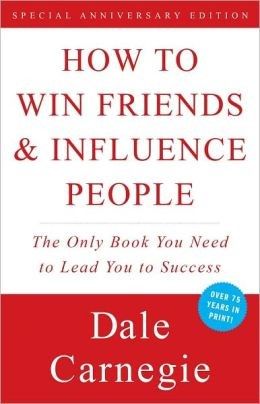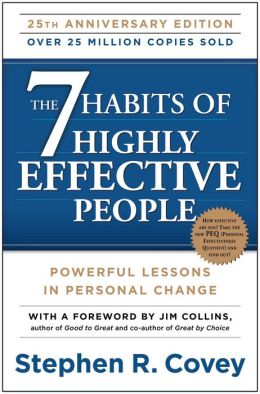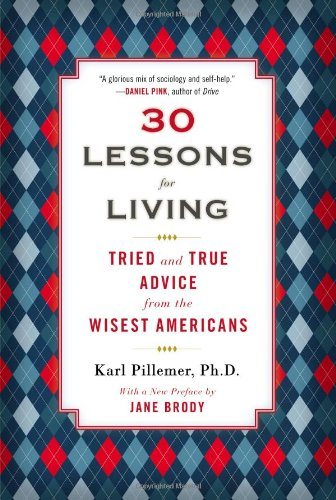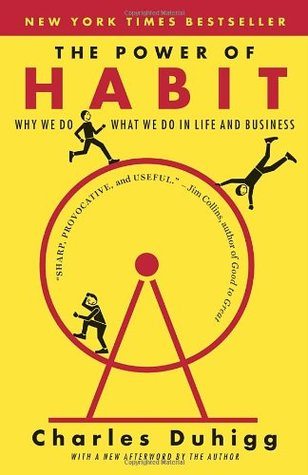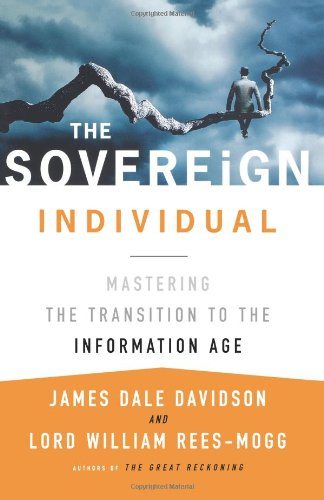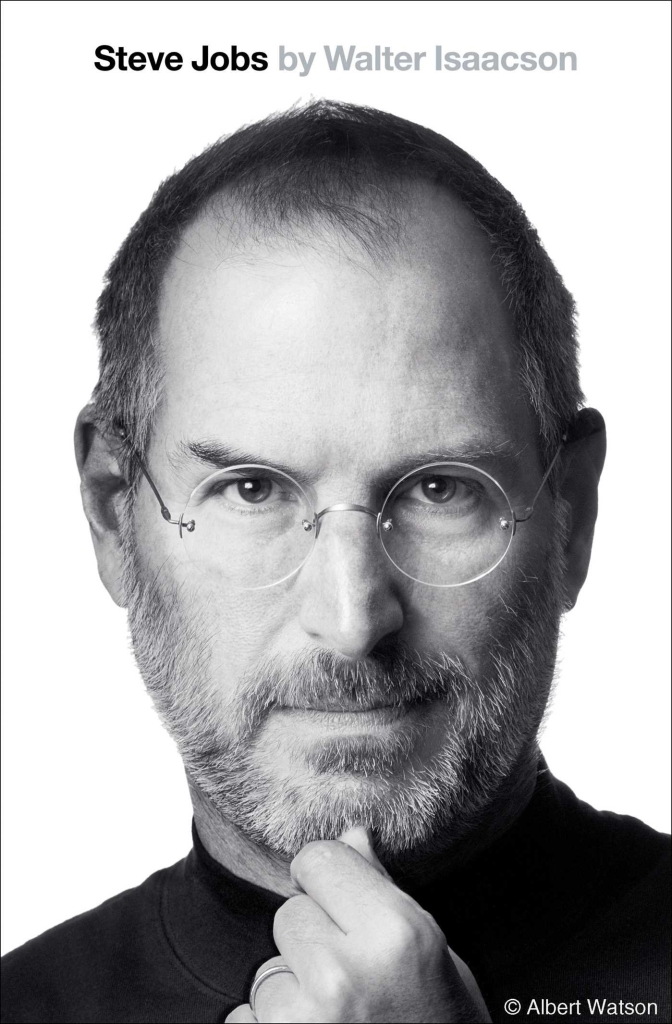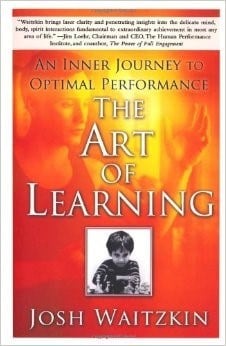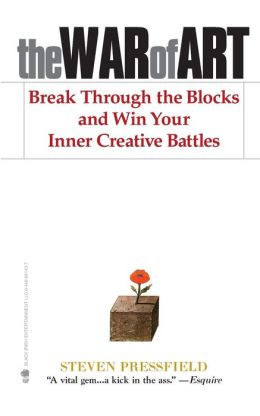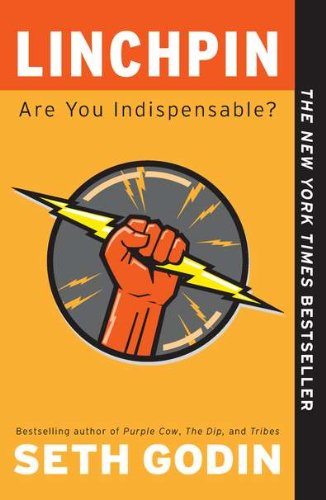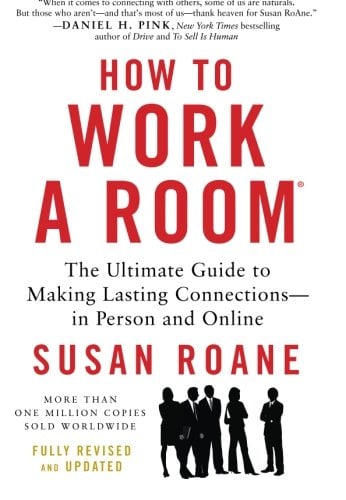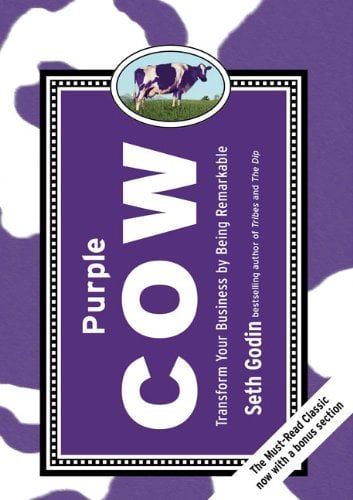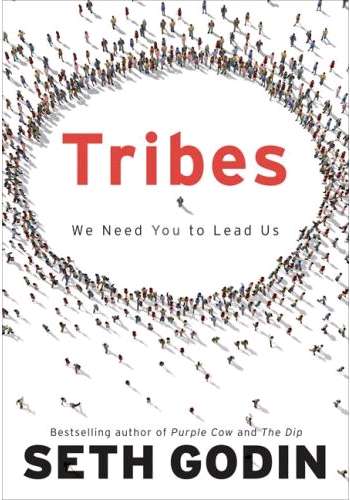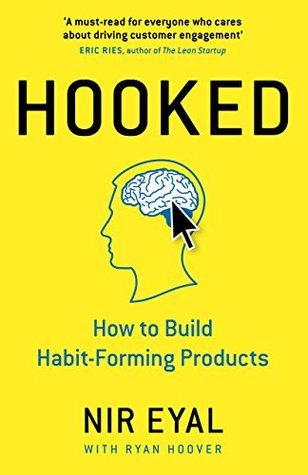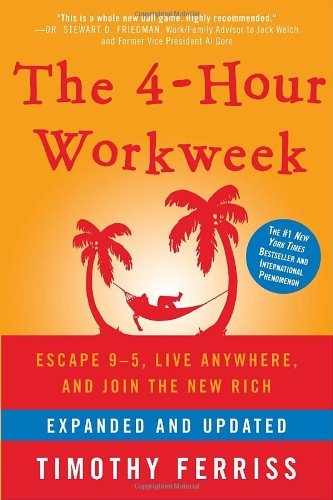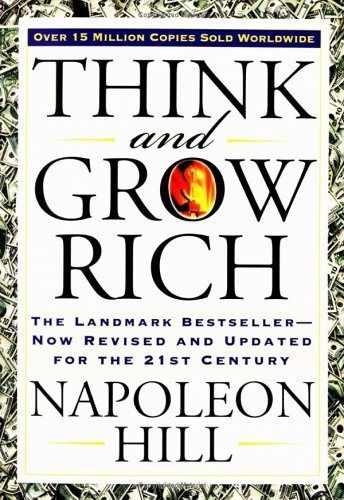I started to help companies and individuals market themselves knowing exactly what I was doing. What I realized is reading books can tremendously help you overcome some of your biggest obstacles, and reading the right books will help you even more. For that reason, I made this list of fifteen books you should read before starting your business:
1. “How To Win Friends And Influence People” by Dale Carnegie
How to Win Friends and Influence People is the first best-selling and one of the most renowned self-help books. Authored by Dale Carnegie and published in 1936, it has sold million copies worldwide. Countless entrepreneurs who build great businesses attribute this book to being their source for success. Many of my friends have even read this several times, so they don’t forget the main points. Carnegie’s advice is practical and may seem obvious, but it’s a one-of-a-kind type of common sense brought to life with excellent examples. I listed this book as number one because I’ve never met a successful entrepreneur who hasn’t read this book.
2. “The Seven Habits of Highly Effective People” by Stephen R. Covey
The 7 Habits of Highly Effective People is one of the best leadership books of the last century that changed the lives of possibly tens of millions. The beautiful takeaway from this book for every entrepreneur looking to build a business is the power of focus and initiative. Stephen Covey voices how without these two characteristics – no matter what knowledge you obtain – you won’t become a better person. Covey notes that without adopting a “paradigm shift” in the way you perceive and interpret how the world works, then The 7 Habits of Highly Effective People will fall short of its intention. This is not a simple book that gives you shortcuts or a few quick tips. The concepts are sophisticated, and the chapters should be re-read with fervent note taking. This book is about the fundamentals of staying on your path to success. Without the right focus, your business won’t succeed making this a must read.
3. “30 Lessons For Living” by Karl Pillemer
Self-improvement books are a billion-dollar industry, and self-improvement overall is over $10 billion. With endless advice columns, so-called television experts, lifestyle publications, and health and wellness bloggers, it’s difficult to discern who the experts are, especially when few speak from experience. 30 Lessons for Living was a 5-year project by Karl Pillemer, a renowned gerontologist (someone who studies the social, psychological, cognitive and biological aspects of aging). He talked with thousands of Americans over the age of sixty-five, many of whom experienced WWII and Vietnam. His determination to find out what lessons we could learn from this generation led to one awe-inspiring book for not just entrepreneurs starting business looking to live a balanced life, but for everyone. Without a balanced life, your business won’t survive for the long run. So, start preparing to embrace a healthy lifestyle by reading this book.
4. “The Power of Habit” by Charles Duhigg
Investigative reporter for The New York Times, Charles Duhigg, researched how habits form, how they can be beneficial, and how they can be destructive. This book helps entrepreneurs take a deeper look at themselves so that they change their habits. The Power of Habit puts you on an intriguing journey talking about the habits of individuals, how habits interact with the brain, how companies utilize habits, and how retailers use them to manipulate buying habits. The Power of Habit teaches you how habits form in a variety of ways, not just product specific as it teaches you about the benefits of utilizing good habits for embracing personal change. If you’re interested in making sure habits keep your company running and your products satisfying customers, then this book is for you.
5. “The Sovereign Individual” by James Dale Davidson and Lord William Rees-Mogg
The Sovereign Individual, authored by James Dale Davidson and William Rees-Mogg, is a thought-provoking read. Written in 1997, the book aimed to predict the future and was dead on. It covers many soon-to-happen – and now past – events both technological and financial. Anyone who wants to start a business should read this book to gain clarity on how the future of technology will affect everyday commerce. The book’s premise revolves around the notion that governments will decentralize, and self-rule will become more prominent as technology improves. The authors conclude that governments will no longer be able to compete with the speed at which the private sector innovates. And soon, the government won’t even have the means to offer a worthy substitute. The Sovereign Individual takes on the idea of nationhood and explains the source and type of propaganda used to legitimize it. Here are a few great quotes that came to life in the following years after the book was published: Any business owner should understand the intersection of technology and commerce because in a world that’s constantly innovating, it’s the only way to keep up. “You can expect to see crises of misgovernment in many countries as political promises are deflated and governments run out of credit.”
6. “Steve Jobs” by Walter Isaacsen
The book Steve Jobs is a read about an entrepreneur who took it upon himself to change the world. Author Walter Isaacson compiled forty plus interviews with Steve Jobs and over a hundred interviews with family members, friends, and colleagues to create this one-of-a-kind book. If you want to start a business, this book will motivate you to take your aspirations above and beyond. Isaacson writes about every aspect of Jobs’ personal life from personality to beliefs. He even touches on little-known facts about Jobs such as being born out of wedlock to a Syrian Muslim, then adopted at birth by working class parents. Also, Steve Jobs was a multi-billionaire who lived on an average street without security or servants, devoted to Zen and in love with simplicity. Moreover, he was not the best parenting father to say the least. But, he was a leader with massive influence in the computing world even with little knowledge of code. Part of his incredible influence resulted from his sales and marketing genius. Steve Jobs lived one of the most incredible lives that you’ll ever read about. The story inspires your inner leader and business sense while convincing you that one man can have a tremendous impact on the world.
7. “The Art of Learning” by Josh Waitzkin
The Art of Learning is a must read for any entrepreneur interested in how one processes information and turns into a tangible skill. The book is about the life of the author Josh Waitzkin, who put himself on a remarkable journey. Josh Waitzkin is widely recognized as the main character in the best-selling book, Searching for Bobby Fisher, whereas a chess prodigy, he received significant publicity that took a huge negative toll on him for years. He rose to the top of the world in both chess and tai chi martial arts. He reflects on his experiences to teach us valuable methods on how to reenact his journey of learning for our passions. This book will help you overcome any learning curve in starting a business. An important takeaway from The Art of Learning is the idea that you should concentrate on executing the task at hand rather than the results and outcomes. This type of focus creates a path of learning and eventual mastery. Josh continues to teach us how to focus on creating a lifestyle that ignites creativity and growth so that we can trigger intuitive breakthroughs, perfect techniques, and master performance psychology. Josh’s assessment of the moments he overcame challenges both physical and mental, give the reader an excellent understanding of his principles in application. The Art of Learning is a cornerstone for business owners and Tim Ferriss recommends it as one of his top books, too.
8. “The War of Art” by Steven Pressfield
Renowned author, Steven Pressfield, wrote The War of Art to inspire other writers, artists, musicians, or anyone else attempting to channel their creative ambitions. His book is more than about being creative, though; it’s about reaching higher to fulfill your potential as someone who innately has some form of art to offer the world. As an entrepreneur interested in starting a business, you are aiming to produce some form of art to sell. From that perspective, this book is perfect for you. Josh consistently mentions the word “resistance,” a word that every person must overcome in their journey to become an artist. Resistance wants you to be lazy, average and avoid risks. Resistance is the reason many people choose to watch Netflix over creating art. Pressfield describes the battle against resistance as a never-ending war – one to the death. Some of his more notable points in The War of Art include refuting the motivation nonsense that by following the right formula and working hard, you can achieve your dreams. Instead, he aims to convince his readers that “We are not born with unlimited choices… Our job in this lifetime is not to shape ourselves into some ideal that we imagine we ought to be, but to find out who we already are and become it.” Pressfield’s prescriptions for defeating resistance are not awe-inspiring, but common sense: show up every day and get to work. If you want to push through your creative strugles when differentiating your business, then pick this book up immediately.
9. “Linchpin” by Seth Godin
Linchpin is one incredible read and has changed many lives. Seth Godin writes this book beautifully with passion spilling out from each page. If you’re interested in leading a business, this book will encourage you to take on a powerful role you need for your company’s survival. Seth Godin defines a Linchpin as someone in an organization who is indispensable and can’t be replaced because their role is too unique and valuable. Without hesitation, he points out that not becoming a Linchpin is career suicide. Seth Godin points out, “Everyone’s an artist now.” And his definition of an artist is someone who does “emotional work,” work that needs your heart and soul to be great. Seth challenges every reader to become a linchpin – an artist. That no matter what the sacrifice is, it’s worth it.
10. “How To Work A Room” by Susan Roane
How to Work a Room is a book about networking and socializing. Most of us are shy, in fact, the author Susan Roane claims 93% of us are so. Networking is key to creating a successful business. Without connections and relationships, no one will buy your products. For those with savvy socializing skills, you may not get whole lot applicable usage out of this book. However, for many of us it can be that push to help us break out of our shell and meet people. Even though this book is about socializing and networking, the truth is that it’s also about relationship building. Without the ability to meet people, your relationships won’t grow, hindering your success and happiness. She notes that “natural public speakers” and “savvy socializers” don’t exist without practice. These characteristics are achieved through hard work, preparation, and perseverance. Most of us, even the super socializer is just as self-conscious as everyone else, but they use techniques and practice to enable them to make connections.
11. “Purple Cow” by Seth Godin
Purple Cow, written by Seth Godin, is one of those motivational books you rarely come across. Purple cows are somewhat of a mystery – something phenomenal, counterintuitive, exciting, and surprising. If we saw rows of cows every day, eventually we would stop looking. But if we saw a purple cow, you bet we would stop and stare. Is your business a purple cow? This is the point of the book – whether you’re branding yourself or a business – be unique and stand out. Be the purple cow you were always meant to be. If you’re another blank page in a notebook, then no one will notice your business, and before you know, you’ll be starting back from square one. This book won’t teach you how to become a purple cow; however, it will give you some examples of how other people and businesses did it. This book is for inspiration. The truth is: the purple cow is inherent, it’s either there or it’s not. And if you can find your purple cow, do everything you can to embrace it.
12. “Tribes” by Seth Godin
Tribes, another fantastic book by Seth Godin that teaches you how to form a community with the same goals and interests around you. He points out that it is human nature to seek out being a part of a tribe, whether ethnic, economic, political or even musical. For any successful business, they must create a community of loyal followers, otherwise known as a brand. And no company lasts without a brand. He notes that the internet eliminated many of the barriers to creating tribes and enabled a myriad of new tribes to be born. With so many new tribes, who will lead them? If you’re looking to make a difference as an entrepreneur, you need a tribe that will help you make your vision successful. The web is incredible, but it’s not a platform where you can lead in full force. You have to work online and offline with determination and idealism. Similar to Seth’s book, Purple Cow, you won’t find the exact steps to become a leader, but the inspiration and courage to do so through case studies and well-presented information.
13. “Hooked” by Nir Eyal
Hooked is about building user engagement, so products are launched with great reception. Authored by Nir Eyal and Ryan Hoover, the founder of Product Hunt, Hooked teaches you how to create and design habit-forming products. The worst thing you can do when starting a business is not do your research. Step one is finding out whether your product will engage users, that’s where Hooked comes in. To understand how habits control us, we must identify their origin. Hooked is just as much helpful in removing negative habits as it is in building excellent products. After I had finished the book, I began seeing products and services in a user-oriented way; for instance, why people spend hours every day on Facebook and Instagram. I came across this book when working for a startup that built several mobile apps, and I was surprised when I received personal development benefits.
14. “The 4-Hour Workweek” by Timothy Ferriss
Tim Ferriss wrote the 4-Hour Workweek for those looking to maximize their productivity and freedom. The book is an excellent read, and it was so good that it was on The New York Times bestseller list for seven years. Many entrepreneurs consider Tim Ferriss the ultimate business guru and he has a huge devoted following to prove it. So what’s in the 4-Hour Workweek: It includes Tim Feriss’s story of having a lifestyle of $40,000 per year and 80 work hours per week to $40,000 per month and 4 hours per week. Also, he teaches you how to outsource many of your projects to virtual assistants and how to step up and become a top-notch entrepreneur that can travel the world. Furthermore, the book explains how you can eliminate 50% of your work in 48 hours using the Pareto principle, and how to trade a long-term career for short work sprints and frequent “mini-retirements.”
15. “Think and Grow Rich” by Napoleon Hill
Think and Grow Rich was first published in 1937 by Napoleon Hill. In between 1930 and 1970, the book sold over 20 million copies. When a book is written with the truism found in inherent life principles, it becomes a timeless since its lessons will always be relevant. In accordance, Napoleon divides Think and Grow Rich into 13 principles and lessons to be mastered. Here’s an overview of the first seven: Desire: Desire is not about wishing; it’s about wanting. Only when someone wants something do they act towards attaining it. When you’re fully committed to wanting something, you have Desire, and it’s best to put that desire into a mission statement. Faith: What Napoleon Hill calls Faith is actually a type of self-confidence that is similar to a religious passion. He teaches you the importance of disciplining your mind to understand the purpose of failure before it arrives. Hill also developed a self-confidence formula in five steps to commit to memory (found in the book J). Auto – Suggestion: As Hill once put it: “If you do not see great riches in your imagination, you will never see them in your bank balance.” Specialized knowledge: Hill talks about the importance of having a niche – a unique selling point. But also the importance of surrounding yourself with people who have specialized knowledge, too. Imagination: “It has been said that man can create anything which he can imagine,” Hill writes. Organized planning: “You are engaged in an undertaking of major importance to you. To be sure of success, you must have plans which are faultless.” Hill also mentions that a leader must possess the quality, quantity and spirit of service. Decision: Leaders know how to reach decisions promptly and how to stand behind their decisions. Such people, Hill writes, “know what they want, and generally get it.” That is because “the world has the habit of making room for the man whose words and actions show that he knows where he is going.” Think you’re ready to start your business? Featured photo credit: Timothy Ferriss via brazigzag.com
